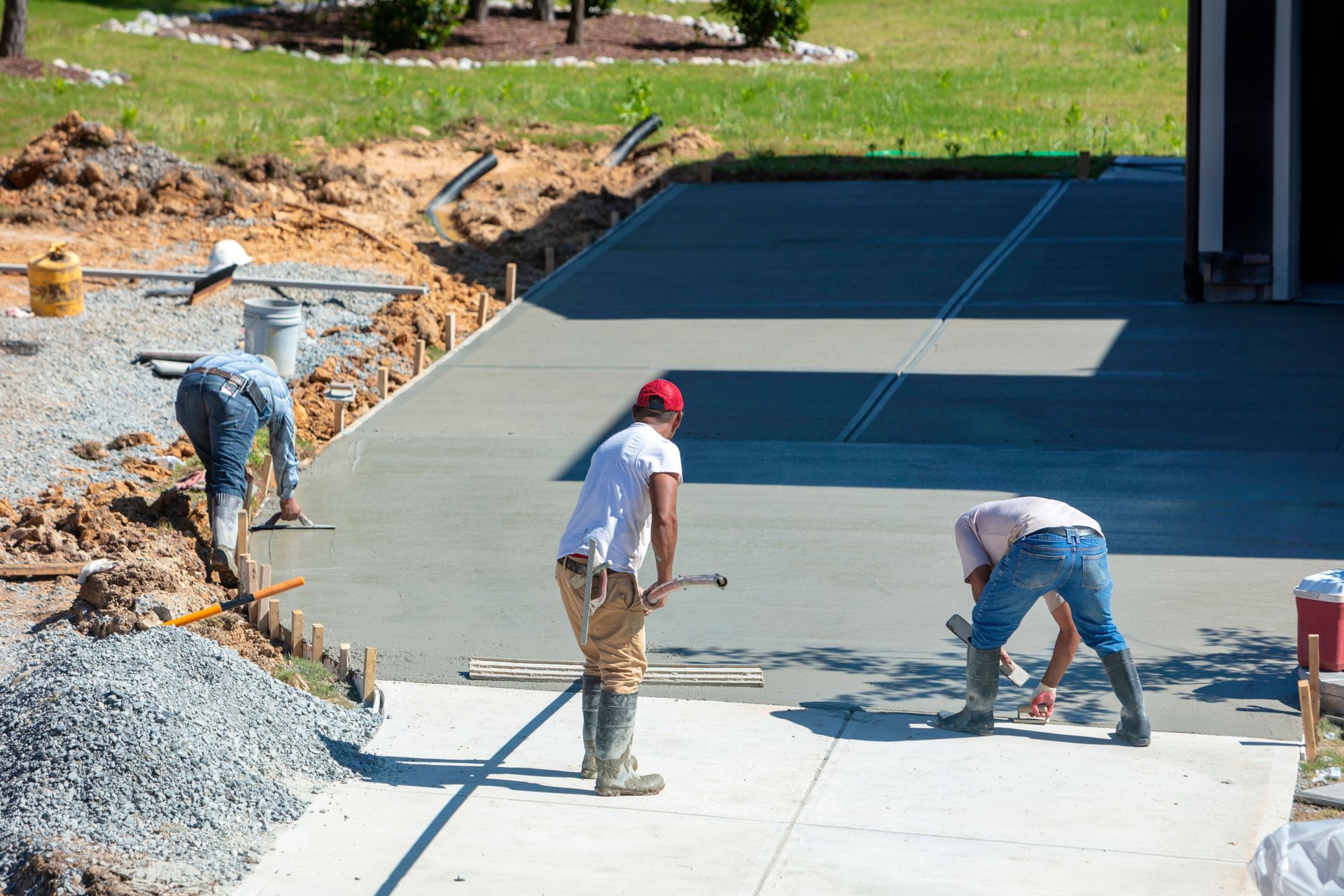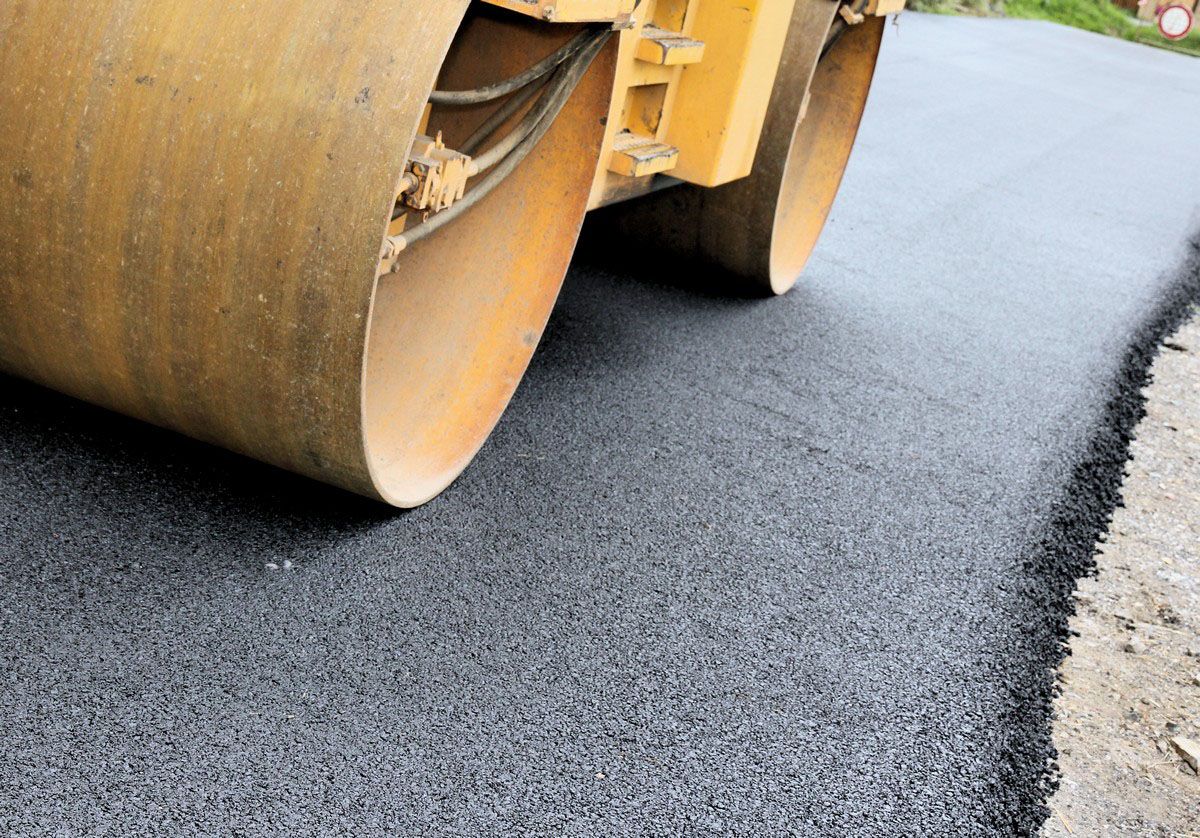August 15, 2025
Planning to build a new concrete driveway? Whether you're replacing an old one or installing a new feature altogether, this project is more than just pouring and smoothing concrete. From the choice of materials to permitting requirements and long-term maintenance, several critical steps ensure your investment is solid, both literally and financially. If you're considering this type of project, here's what you need to know before beginning concrete driveway construction.
Understanding Why Concrete Is the Right Material
Before diving into the technicalities of installation, it's essential to understand why concrete driveways remain a popular choice among homeowners. Concrete is durable, long-lasting, and aesthetically versatile. It can also be tinted, stamped, or textured to match your home's style, giving it a finished and polished appearance that boosts curb appeal. When properly installed and sealed, it stands up to harsh weather, heavy vehicles, and years of daily use.
Evaluating Your Site Conditions Before Installation
Every property is different, and your site's specific conditions play a major role in the success of your concrete driveway project. Sloping terrain, poor drainage, unstable soil, and underground utilities can affect how the driveway must be designed and installed. Before any concrete is poured, it's important to assess the existing ground conditions. You'll need to consider whether excavation or soil stabilization is necessary. Failing to address these conditions ahead of time can result in cracking, uneven settling, or even structural failure.
Securing Permits and Meeting Local Requirements
Concrete driveway construction is not a project you can typically begin without first checking with your local municipality. Many cities and counties require building permits for driveways, especially if they intersect with public sidewalks or roads. Local codes may also dictate the minimum width, thickness, slope, or setback requirements. Before starting, it's best to contact your building department to learn about what's needed in your area. A knowledgeable contractor can often handle this process for you, ensuring all local regulations are met.
Choosing the Right Concrete Mix for Your Needs
Concrete may look the same once it's cured, but not all mixes are created equal. Depending on your climate and the expected load on your driveway, different concrete blends may be recommended. For instance, in regions with freeze-thaw cycles, air-entrained concrete is typically used to prevent cracking caused by expanding moisture. If your driveway needs to support heavier loads, a mix with higher compressive strength is necessary. Choosing the right concrete mix from the start will help ensure the longevity and durability of your new driveway.
Preparing the Base to Ensure a Strong Foundation
Before any concrete is poured, the ground underneath must be properly prepared. This stage includes excavation, grading, and compacting the subbase, usually made of crushed stone or gravel. A well-compacted base is crucial because it provides the support that prevents cracking and shifting. Depending on your soil and drainage conditions, a contractor may also install a geotextile layer to stabilize the soil and reduce moisture migration. Skimping on this phase can lead to costly issues down the road, making professional preparation a must.
Pouring the Concrete With the Right Timing and Technique
When the base is ready and the forms are in place, it's time to pour the concrete. Timing is everything in this phase. Concrete begins to cure as soon as it's mixed, so it must be placed and finished quickly and efficiently. A typical concrete driveway is poured in one continuous operation, which helps prevent cold joints and weak spots. Finishing techniques, such as screeding, floating, and troweling, are performed to smooth the surface and eliminate imperfections. The edges are shaped, and expansion joints are added to allow for natural movement and prevent cracking.
Allowing Proper Curing Time for Maximum Strength
Concrete does not reach its full strength overnight. In fact, in our experience, the curing process can take up to 28 days, and rushing this phase can significantly reduce your driveway's durability. During the first few days after pouring, the surface must be kept moist to prevent the concrete from drying too quickly, which can lead to shrinkage cracks. In some cases, curing compounds are applied to retain moisture. We recommend keeping foot traffic off the surface for at least 24 to 48 hours and avoiding parking vehicles on it for a minimum of seven days. Giving the driveway adequate time to cure ensures it develops the strength needed to last for decades.
Maintaining the Driveway to Extend Its Lifespan
Once your concrete driveway is in place and fully cured, proper maintenance will help preserve its appearance and performance. Regular cleaning, sealing, and avoiding harsh deicing chemicals in winter are all best practices for long-term care. Sealing your driveway every few years protects it from moisture penetration, oil stains, and surface wear. Addressing minor cracks and stains promptly prevents them from worsening over time. While concrete is one of the most durable driveway materials, maintaining it will ensure it remains a valuable asset to your property.
Anticipating Costs and Budgeting for the Project
Cost is always a factor when it comes to any home improvement project, and concrete driveway construction is no exception. The total price can vary based on several factors, including driveway size, site preparation needs, chosen finishes, and local labor rates. Decorative options like stamped patterns or custom coloring can increase the cost but also enhance the aesthetic value of your home. It's important to request a detailed estimate from a reputable contractor who can explain all the variables involved.
Hiring the Right Contractor for the Job
A successful concrete driveway starts with the right professional. Because of the technical nature of concrete work—especially when it comes to site preparation, proper mixing, and curing—it's not a DIY-friendly project. A skilled contractor will ensure the job meets all industry standards and local codes. When choosing a contractor, ask about their experience, request photos of past work, and verify their licensing and insurance. Reading reviews and speaking with past clients can also give you peace of mind that your investment is in good hands.
Recognizing the Long-Term Value of Concrete Driveways
When properly installed and maintained, a concrete driveway not only adds function but also boosts your home's curb appeal and resale value. Unlike gravel or asphalt alternatives, concrete provides a clean, polished appearance that enhances the look of any home. Its strength and longevity mean fewer repairs over time, making it a cost-effective option in the long run. According to IBISWorld, the concrete contractors industry revenue has been increasing at a CAGR of 2.3% over the past five years to total an estimated $91.2 billion in 2025. That growth reflects increasing demand for concrete-based infrastructure, including residential driveways.
Planning Ahead to Avoid Common Mistakes
Many problems with concrete driveways—such as cracking, scaling, or drainage issues—result from poor planning or rushed construction. To avoid these issues, address all aspects of the process from the beginning, including site evaluation, permitting, material selection, and curing. Take your time to research your options, consult with professionals, and schedule your project during favorable weather conditions. Rushing through important steps often leads to avoidable repair costs later on.
Enjoying the Results of a Professionally Installed Driveway
Once your new concrete driveway is complete, you'll enjoy a smooth, durable, and visually appealing surface that serves your home for years to come. Not only will it handle the daily demands of vehicles and foot traffic, but it will also contribute to the overall aesthetic and value of your property. With the right preparation and a qualified contractor, concrete driveway construction can be a straightforward and rewarding investment that pays off in functionality and curb appeal alike.
Ready to start your concrete driveway project? At Americo Construction Co, we have the expertise, equipment, and attention to detail to deliver lasting results. Whether you're upgrading your existing driveway or building from scratch, our team is here to guide you through every step of the process. Call us today!






